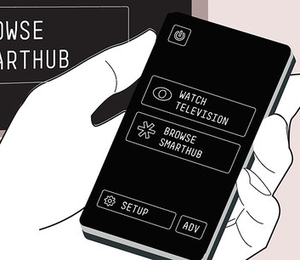Adaptive Gadgetry - Exposing Different Functions as a Function of User Capability

What would you want to happen when you earn enough XP to level up your TV?
I found an interesting article over at Fast Company about the idea of building devices that dynamically adjust the features that they expose to the user based on the user’s perceived abilities. Interestingly, it’s partially based on the theory that drives many video games: experience points.
The Next Big UI Idea: Gadgets That Adapt To Your Skill
The article is a great read, and the author covers almost all of the “yeah but”s that came to mind except one. The idea of making devices more accessible to people who would be intimidated by their complexity is awesome, and I think the concept described in the article tackles it very well. My only concern would be how much people might be thrown off by newly revealed complexity. If, one day, there were more buttons on my remote control, I would play with them to see what they did. Many people don’t think this way, and would stay away from the new buttons (something that is addressed in the article). Still other people might be so put off by the additions that the buttons they were already familiar with may seem suddenly foreign (I know a few people like this).
There’s no real way to tell how big of a problem that might be without trying it out, but it’s one case that the author doesn’t seem to cover: what about people who don’t want to “level up”?

About Adam Platt
Adam Platt is a technologist with more than a decade of experience across the full stack. His passion for technology and penchant for rendering complex technical ideas into simple terms have made him an in-demand speaker. His resume includes BriForum, the PowerShell Summit, teaching engagements and more.
He is one of the 10 types of people who understand binary and he can solve a Rubik’s Cube.

About Adam Platt
Adam Platt is a technologist with more than a decade of experience across the full stack. His passion for technology and penchant for rendering complex technical ideas into simple terms have made him an in-demand speaker. His resume includes BriForum, the PowerShell Summit, teaching engagements and more.
He is one of the 10 types of people who understand binary and he can solve a Rubik’s Cube.